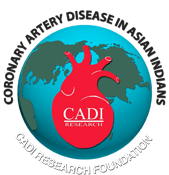The Prudent diet ─ A practical modification of Mediterranean Diet
- The paradigm that diet acts exclusively via effects on serum lipoproteins has changed and it now extends to several metabolic pathways related to insulin resistance, metabolic syndrome, diabetes, hypertension, and cardiovascular disease (CVD). A healthy or prudent diet is associated with reduced rates of a multitude of major diseases, including heart attack, cancer, stroke, diabetes, and high blood pressure.
- According to the dietstrict.com, dietary pattern rather than individual nutrients appears to be more important. Recent research suggests the existence of a food synergy in which beneficial effects of healthy foods are magnified when several different types of foods are consumed.1
- Hu et al 2-5 have developed the concept of “prudent diet” which in realty is a practical modification of the Mediterranean Diet and applicable to people all over the world. It is the antithesis of the typical Western Diet.
|
Table 112 A. The Major Differences between Western Atherogenic Diet and the Prudent Diet6 |
||
|
Western/Atherogenic diet |
Prudent diet |
|
| Calories |
High |
Low |
| Energy dense foods |
High |
Low |
| Saturated fat |
High |
Low |
| Trans fat |
High |
Low |
| Monounsaturated fat |
Low |
High |
| Fried, crispy foods |
High |
Low |
| Glycemic index and glycemic load |
High |
Low |
| Refined carbohydrates and sweets |
High |
Low |
| Processed foods |
High |
Low |
| High-fat meats |
High |
Low |
| Full-fat dairy products |
High |
Low |
| Low-fat dairy products |
Low |
High |
| Lean meats |
Low |
High |
| Fruits and vegetables |
Low |
High |
| Nuts |
Low |
Moderate |
| Soy products |
Low |
High |
| Soluble and insoluble fiber |
Low |
High |
| Alcohol |
Binge drinking |
Regular consumption in small quantities |
- The traditional “Western diet” is characterized by a high intake of high-fat dairy products, high-fat meat, processed meat, refined grains, sweets, desserts, and French fries. In sharp contrast, a “Prudent Diet” is rich in fruits, vegetables, nuts, whole grains, legumes, low-fat dairy products, fish, and lean cuts of meat (Table 112 A).
- This prudent diet can prevent CVD and its complications to a similar magnitude, as that observed with statins. Such a prudent diet should begin at age 2 and be continued indefinitely.
- The prudent diet is associated with a 24% decreased risk of CVD compared to a 46% increased risk with the Western diet─ a net difference of 70%.4, 7, 8
- A healthy eating pattern consistent with a prudent diet has been shown to reduce the risk of diabetes and major coronary events.9 In the 15 year follow up of the Whitehall II study (106,633 person-years at risk), the healthy pattern reduced the risk of coronary death or heart attack by 29% and diabetes by 26% compared with the unhealthy pattern.9 Such dietary patterns offer considerable health benefits to individuals and contribute to public health.
- Based on the existing evidence, the optimal diet should emphasize fruits and vegetables, nuts, unsaturated oils, whole grains, and fish, while minimizing saturated fats (especially trans fats), sodium, and red meats. Its overall calorie content should be low enough to maintain a healthy weight.8
- Although dietary composition remains an important, modifiable predictor of CVD, overconsumption of any form of dietary energy may lead to obesity and related conditions especially diabetes, elevated triglycerides, and low HDL.
Sources
1. Jacobs DR Jr, Steffen LM. Nutrients, foods, and dietary patterns as exposures in research: a framework for food synergy. Am J Clin Nutr. Sep 2003;78(3 Suppl):508S-513S.
2. Hu FB, Rimm EB, Stampfer MJ, Ascherio A, Spiegelman D, Willett WC. Prospective study of major dietary patterns and risk of coronary heart disease in men. Am J Clin Nutr. 2000;72(4):912-921.
3. Hu FB. Dietary pattern analysis: a new direction in nutritional epidemiology. Current opinion in lipidology. Feb 2002;13(1):3-9.
4. Fung TT, Willett WC, Stampfer MJ, Manson JE, Hu FB. Dietary patterns and the risk of coronary heart disease in women. Arch Intern Med. 2001;161(15):1857-1862.
5. Hu FB, Willett WC. Optimal diets for prevention of coronary heart disease. Jama. Nov 27 2002;288(20):2569-2578.
6. Enas EA, Senthilkumar A, Chennikkara H, Bjurlin MA. Prudent diet and preventive nutrition from pediatrics to geriatrics: current knowledge and practical recommendations. Indian heart journal. Jul-Aug 2003;55(4):310-338.
7. Hu FB. Plant-based foods and prevention of cardiovascular disease: an overview. Am J Clin Nutr. Sep 2003;78(3 Suppl):544S-551S.
8. Adams S M, Standridge JB. What should we eat? Evidence from observational studies. Southern medical journal. Jul 2006;99(7):744-748.
9. Brunner EJ, Mosdol A, Witte DR, et al. Dietary patterns and 15-y risks of major coronary events, diabetes, and mortality. Am J Clin Nutr. May 2008;87(5):1414-1421.

